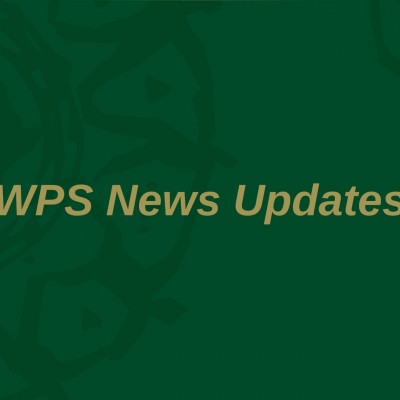Take Five With Ambassador Liberata Mulamula: Placing Women at the Front And Center of Africa’s Peace and Security Agenda
Source: UN Women
UN Women conducted an interview with Ambassador Liberata Mulamula on women’s role in Africa’s peace and security agenda. Ambassador Liberata Mulamula is a Visiting Scholar/Associate Director at the Institute for African Studies, Elliott School of International Affairs at George Washington University. She possesses extensive experience working in diplomacy and on issues of women’s peace and security in Africa. She is a member of the UNSG’s Sixth Peacebuilding Fund Advisory Group and the African Women Leaders Network steering committee, and previously served as served as the first Executive Secretary of the International Conference on the Great Lakes Region.
Read the interview here.
From ‘Bad Women’ to Role Models: Making Demobilisation and Reintegration Gender-Transformative
Source: LSE WPS Blog / Sanne Weber
With the demobilisation of the former FARC guerrillas in Colombia, Disarmament, Demobilisation and Reintegration (DDR) processes are in the public eye again in Latin America. Thanks to the Women, Peace and Security Agenda, much work is being done so that gender can no longer be overlooked in such processes. This was not the case when the Guatemalan National Revolutionary Unity (URNG) guerrillas demobilised, over twenty years ago.
Although gender is now squarely on the DDR agenda, this does not mean that DDR processes currently fare much better at transforming gender inequality. Lessons from Guatemala’s past can therefore prove useful for the future of Colombia and other countries. This blog, based on the article From gender-blind to gender-transformative reintegration: women’s experiences with social reintegration in Guatemala, describes the many challenges that Guatemala’s gender-blind DDR programme produced for women, and identifies how DDR could better promote the transformation of gender inequality.
Read more here.
New Publication: The Handbook for United Nations Field Missions on Preventing and Responding to Conflict-Related Sexual Violence
Source: United Nations
This Handbook is intended to serve as a practical guide to support the implementation of the CRSV mandate by United Nations Field Missions, including Peacekeeping Operations and Special Political Missions. It serves both as guidance for civilian, military, and police personnel deployed to United Nations Field Missions and as a pre-deployment orientation tool for future Mission personnel.
The Handbook has been developed jointly by the Department of Peace Operations (DPO), the Department of Political and Peacebuilding Affairs (DPPA), the Office of the High Commissioner for Human Rights (OHCHR), and the Office of the Special Representative of the Secretary-General on Sexual Violence in Conflict (OSRSG-SVC). It complements and builds upon the Policy on “United Nations Field Missions: Preventing and Responding to Conflict-Related Sexual Violence”, and should be read in conjunction with existing DPO, DPPA, OHCHR, and OSRSG-SVC policies, guidelines, and standard operating procedures (SOPs). The Handbook aims to consolidate existing good practices, methodologies, models, templates, checklists, and other tools to address CRSV.
The Handbook defines key concepts and delineates the responsibilities of civilian, military, and police components within United Nations Field Missions to help prevent and respond to CRSV. Using case studies from various Field Missions, it focuses on common challenges and proposes recommendations. The guidance and best practice described in the Handbook can be built upon and adjusted to suit the specific context and needs of United Nations Field Missions.
Find the Handbook here.



